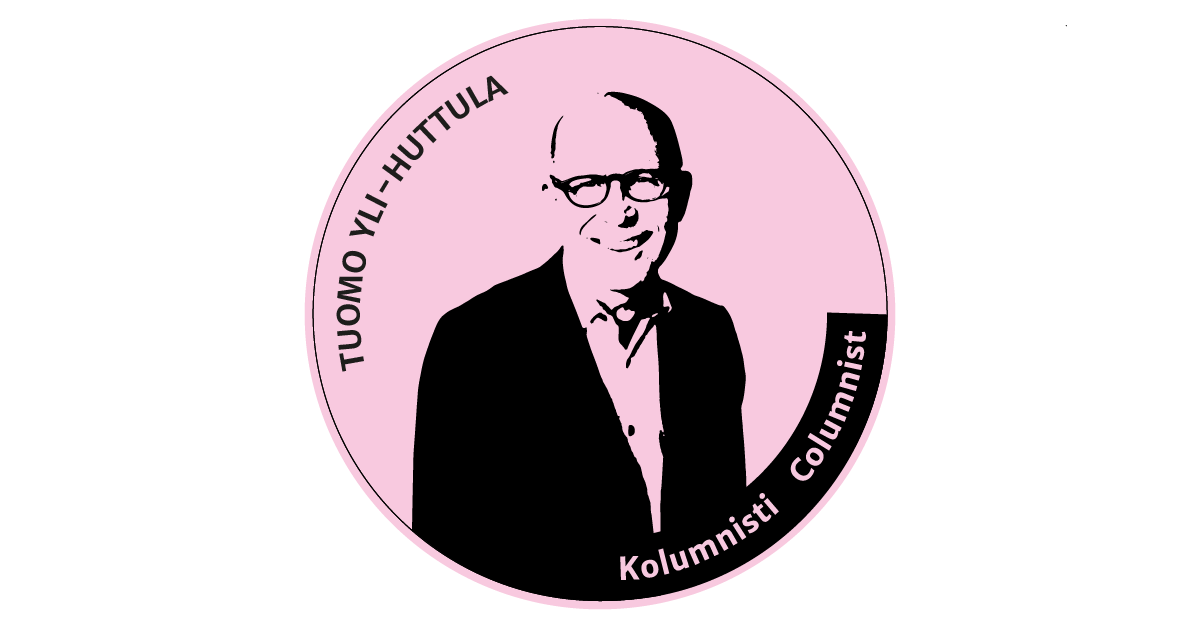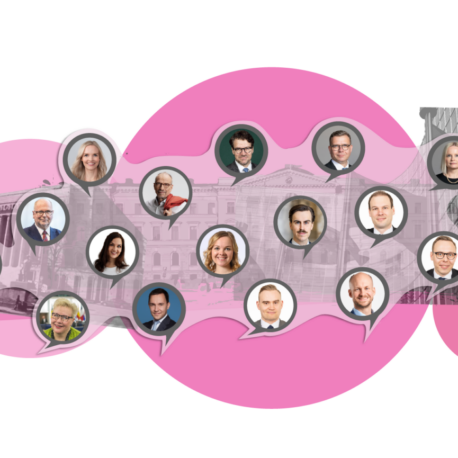
The parliamentary election season brings tidings of joy for the lobbyist advocating transparency and integrity: on Tuesday 21 February 2023, the Finnish Parliament approved the contents of the proposed act on a statutory transparency register.
In 2024, Finland will be the first Nordic country to establish a statutory transparency register. After decades of following in Sweden’s footsteps, we now seem to be way ahead of our dear neighbour.
Seven years ago, I attended a function where I said that in terms of the transparency of lobbying, Finland was stuck on the starting line. This was when I started lobbying for a statutory transparency register in Finland.
======
Finland does not need a transparency
register to prevent shady cabinet deals,
but simply to make lobbying more open
and easier to understand.
======
A few years ago, a distinguished Member of Parliament huffed indignantly: “Tuomo, why on earth are you advocating a lobbyist register? We have no need for one in Finland, because we all know each other.” To which I replied: “That is exactly why we need one.”
It is easy for politicians, officials, lobbyists and journalists to live in their own little bubble. This bubble must be transparent.
I have switched roles within this bubble a few times during my career. In late 1990s, I left my background work in politics to become a journalist for an independent newspaper. I shed my skin. After 15 years in journalism, I switched roles again and became a lobbyist ten years ago. I shed my skin again.
During my career, I have seen lobbying in different roles. I have been the target of lobbying and also experienced some less desirable lobbying tactics in the 1990s.
In the 2020s, Finland does not need a transparency register to prevent any shady cabinet deals, but simply to make lobbying more open and easier to understand.
Trade associations, social partners, non-governmental organisations, corporations and lobbying agencies seek to influence decision-making in society by offering their expertise and views for legislators.
When the transparency of lobbying is improved, the full diversity of viewpoints can be better heard. A skilled decision-maker listens to the viewpoints of multiple interest groups and experts and weighs them carefully before making an informed decision. A decision-maker who only listens to the views of their own reference group fails to see the forest for the trees and is thus unable to move things forward in a democratic process.
Transparent lobbying is an important part of a pluralistic democracy.
This is why I lobbied for the transparency register.
Tuomo Yli-Huttula
Director of Public Affairs at Finance Finland
Chair of the Edunvalvontafoorumi, a network of Finnish lobbyists
Member of the Ministry of Justice working group tasked with preparing the transparency register
Finance Finland already annually publishes a report of its lobbying activities, disclosing the names of the political decision-makers it has lobbied in its key priorities. The reports have been published since 2020.
In a series of four columns, Tuomo Yli-Huttula discusses why Finland needs a statutory transparency register and why he has been lobbying for the register for seven years.
Avoimuusrekisteri.fi service launched on 1 January 2024
- The goal is to increase the openness and transparency of lobbying by obligating legal entities and sole proprietors to report all their lobbying activities and professional lobbying consultation targeted at the Parliament or the ministries.
- The scope of application is limited to the Parliament and the ministries, who are the primary targets of lobbying due to their position in the legislative and budgeting processes.
- Low-impact lobbying will be left outside the scope of the register, as will grassroots civic engagement and the activity of private persons.
- Lobbying activity is to be reported at the individual level, disclosing the names of the members of parliament, ministers, state secretaries, special advisers, permanent secretaries, under-secretaries, director generals and rapporteurs. Personal assistants and other staff of parliamentary groups are reported only in terms of their parliamentary group, without disclosing personal identifying information. Contact with other ministry officials is reported only at the level of their department and unit.
- The entities subject to the reporting obligation are required to submit a report twice a year. Each report must be submitted during its respective reporting period: the first period lasting from 1 January to 28 February, and the second lasting from 1 July to 31 August. The reported information must include who was contacted, what topics were discussed and what the primary means of contact were. In addition, an estimate of the financial resources used in lobbying activity must be reported once a year.
- The information submitted to the register is published in the Avoimuusrekisteri.fi service. Retrieving data from the register is free of charge.
- The registration authority in charge is the National Audit Office of Finland (NAOF), which is tasked with instructing the entities subject to the reporting obligation as well as with preparing detailed guidelines for the use of the service.
- The NAOF has set up an advisory board, whose role is to draw up and maintain recommendations for good lobbying and act as an official body of cooperation for the stakeholder groups related to the regulation. The advisory board began its work in May 2023.
Still have questions?
|Contact FFI experts
Looking for more?
Other articles on the topic

New recommendations for good lobbying practice promote a responsible lobbying culture in Finland – Finance Finland is committed to the ethical guidelines

Finance Finland is committed to open lobbying – The 2023 transparency report covers lobbying activities in Finland and Brussels

Home is where the EU is – it’s time to roll up our sleeves and solidify our place at the heart of the Union

EU membership is part of Finland’s political and economic identity – and Finland is looking to take a more active role




